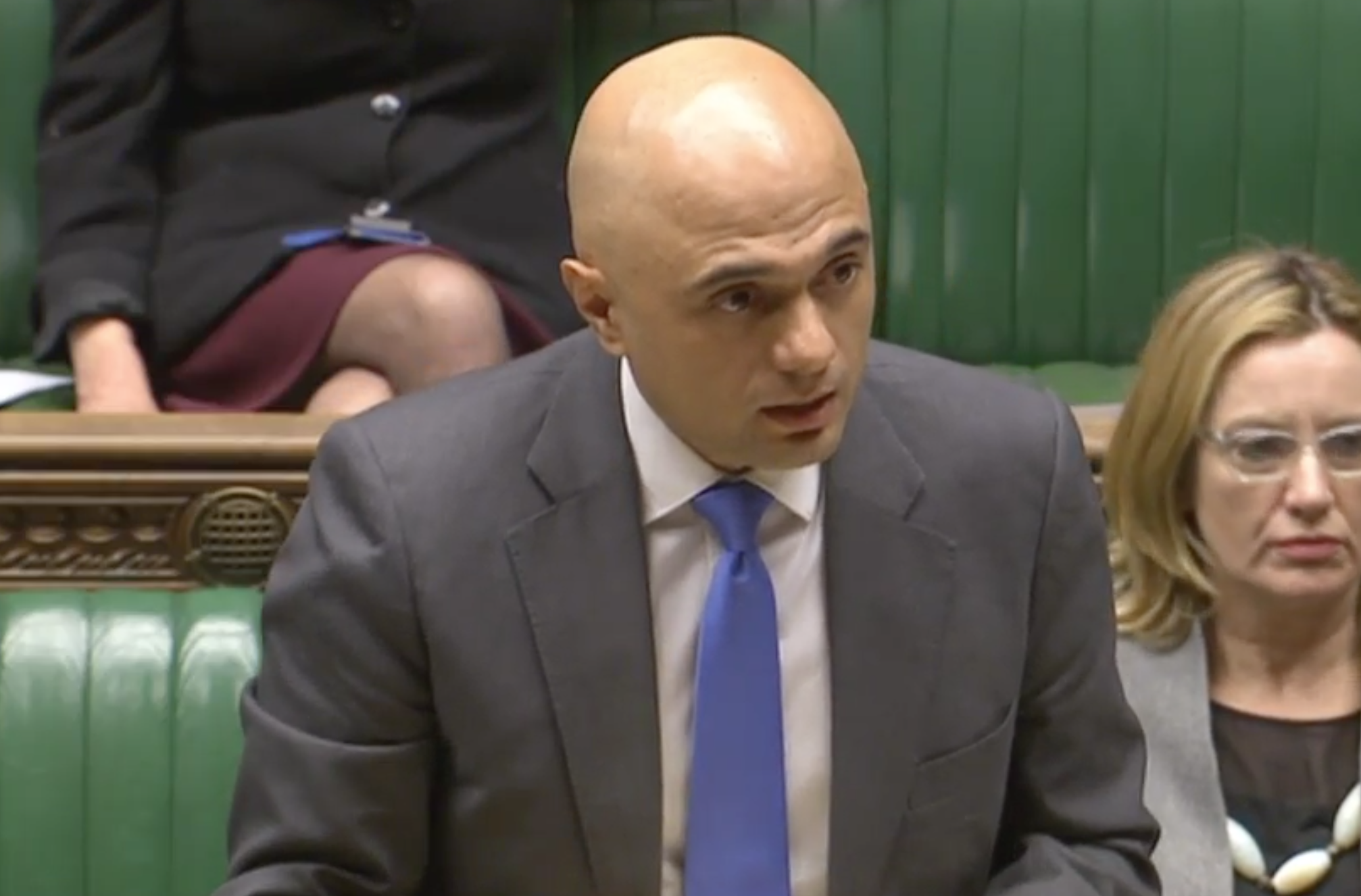Thousands of people could have to swear oath of allegiance to British values
Communities Secretary Sajid Javid said civic and political leaders should 'lead by example' and this could include swearing an oath to abide by British values

Your support helps us to tell the story
From reproductive rights to climate change to Big Tech, The Independent is on the ground when the story is developing. Whether it's investigating the financials of Elon Musk's pro-Trump PAC or producing our latest documentary, 'The A Word', which shines a light on the American women fighting for reproductive rights, we know how important it is to parse out the facts from the messaging.
At such a critical moment in US history, we need reporters on the ground. Your donation allows us to keep sending journalists to speak to both sides of the story.
The Independent is trusted by Americans across the entire political spectrum. And unlike many other quality news outlets, we choose not to lock Americans out of our reporting and analysis with paywalls. We believe quality journalism should be available to everyone, paid for by those who can afford it.
Your support makes all the difference.Every public office-holder should swear an oath of allegiance to British values, the communities secretary Sajid Javid has said.
The pledge would cover elected officials, civil servants, and council workers, but could also be extended to NHS and BBC staff.
The proposal is a response to a report on social cohesion by Dame Louise Casey, which said some sections of society did not accept British values such as tolerance.
Writing in the Sunday Times, Mr Javid said he was “drawn” to Dame Louise’s recommendation to bring in an oath of allegiance because it was impossible for people to play a “positive role” in public life unless they accepted basic values such as democracy and equality.
“If we are going to challenge such attitudes, civic and political leaders have to lead by example.
“We can’t expect new arrivals to embrace British values if those of us who are already here don’t do so ourselves, and such an oath would go a long way to making that happen.”
The oath could include phrases such as “tolerating the views of others even if you disagree with them”, as well as “believing in freedom of speech, freedom of religion, freedom from abuse ... a belief in equality, democracy, and the democratic process” and “respect for the law, even if you think the law is an ass.”
The plans have been condemned, however, as being superficial and divisive. Liberal Democrat home affairs spokesman Lord Brian Paddick said: "Forcing public servants to swear an oath to British values would be both superficial and divisive.
"We should be talking about the universal values that unite us, not using nationalistic terms that exclude people.
"The Government must focus on integrating those small pockets of people living in segregated communities.
"Instead they are creating hostility towards all minority communities, the vast majority of whom want to be an integrated part of the United Kingdom."
Labour's shadow home secretary Diane Abbott said the move would not combat radicalisation.
She told Sky News: "I have nothing against it in principle, but it will not make a difference to the problems of radicalisation, or integration.
"I don't think the oath will make any verifiable difference."
Former chancellor George Osborne hailed the idea as a "great initiative", and ex-culture secretary John Whittingdale also said he supported the oath.
In her report, Dame Louise said that immigrants should have more access to English language classes and be made to take an “oath of allegiance” to improve integration efforts.
The review was set up in 2015 by the then Prime Minister David Cameron to consider what could be done to boost integration in isolated and deprived communities.
Dame Louise said there were areas that were struggling to cope with the pace and scale of change they faced as a result of immigration while there were still large social and economic gaps between different ethnic groups.
In particular, she highlighted the plight of women who found themselves marginalised through poor English language skills while being subjected to “coercive control, violence and criminal acts of abuse, often enacted in the name of cultural or religious values”.
In a wide-ranging set of recommendations the review called for more English classes for isolated groups, greater mixing among young people through activities such as sport, and a new “oath of integration” enshrining British values for all holders of public office.
Join our commenting forum
Join thought-provoking conversations, follow other Independent readers and see their replies
Comments